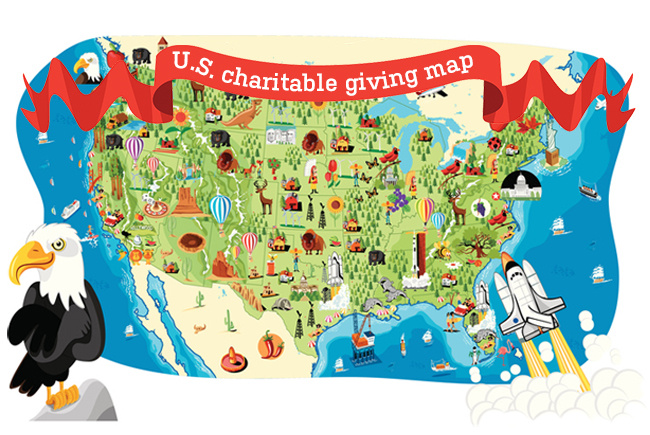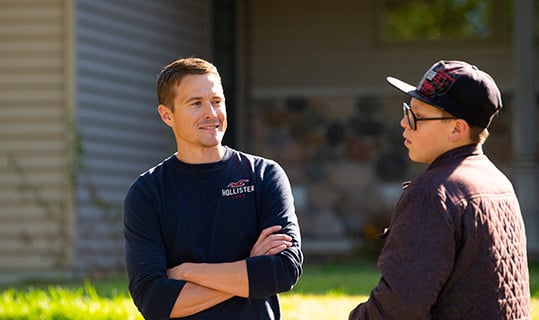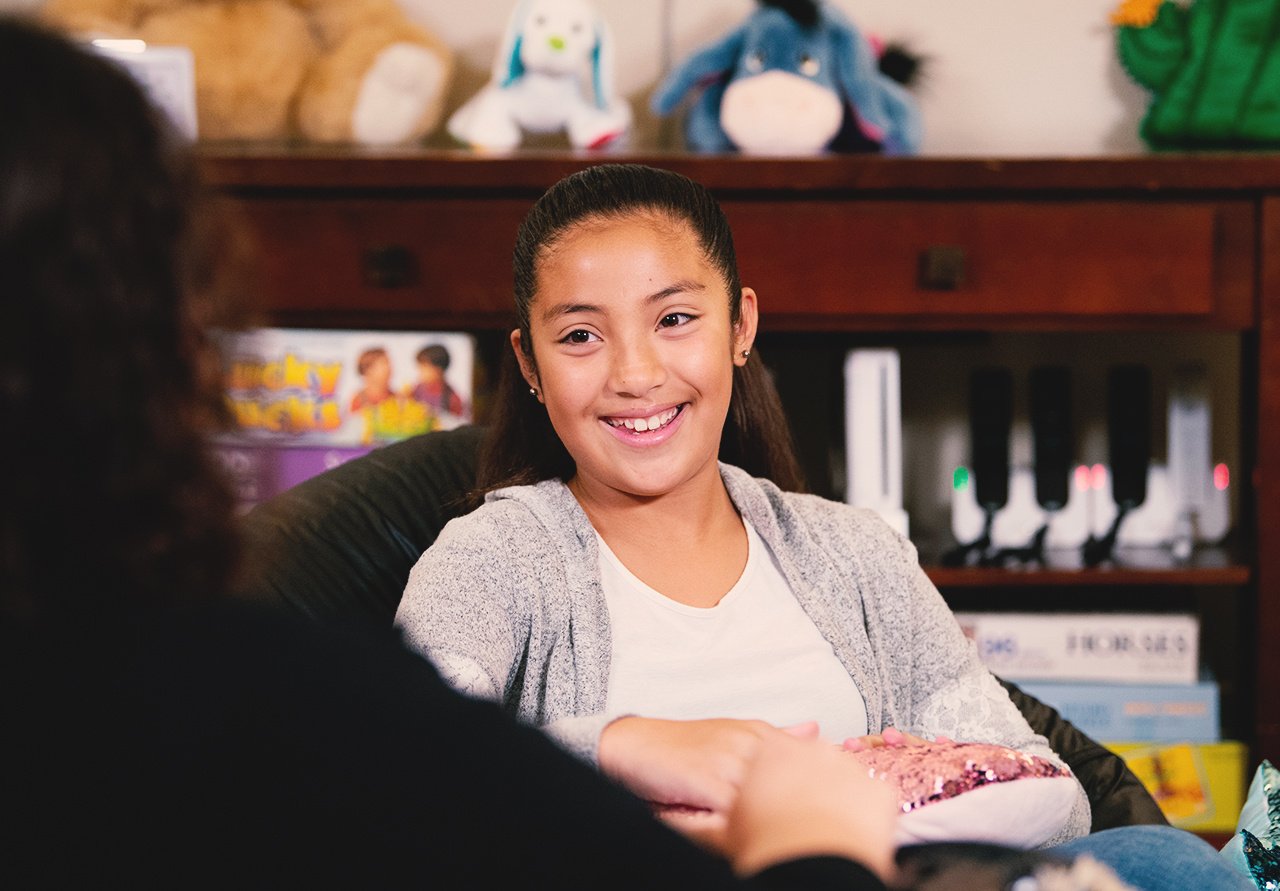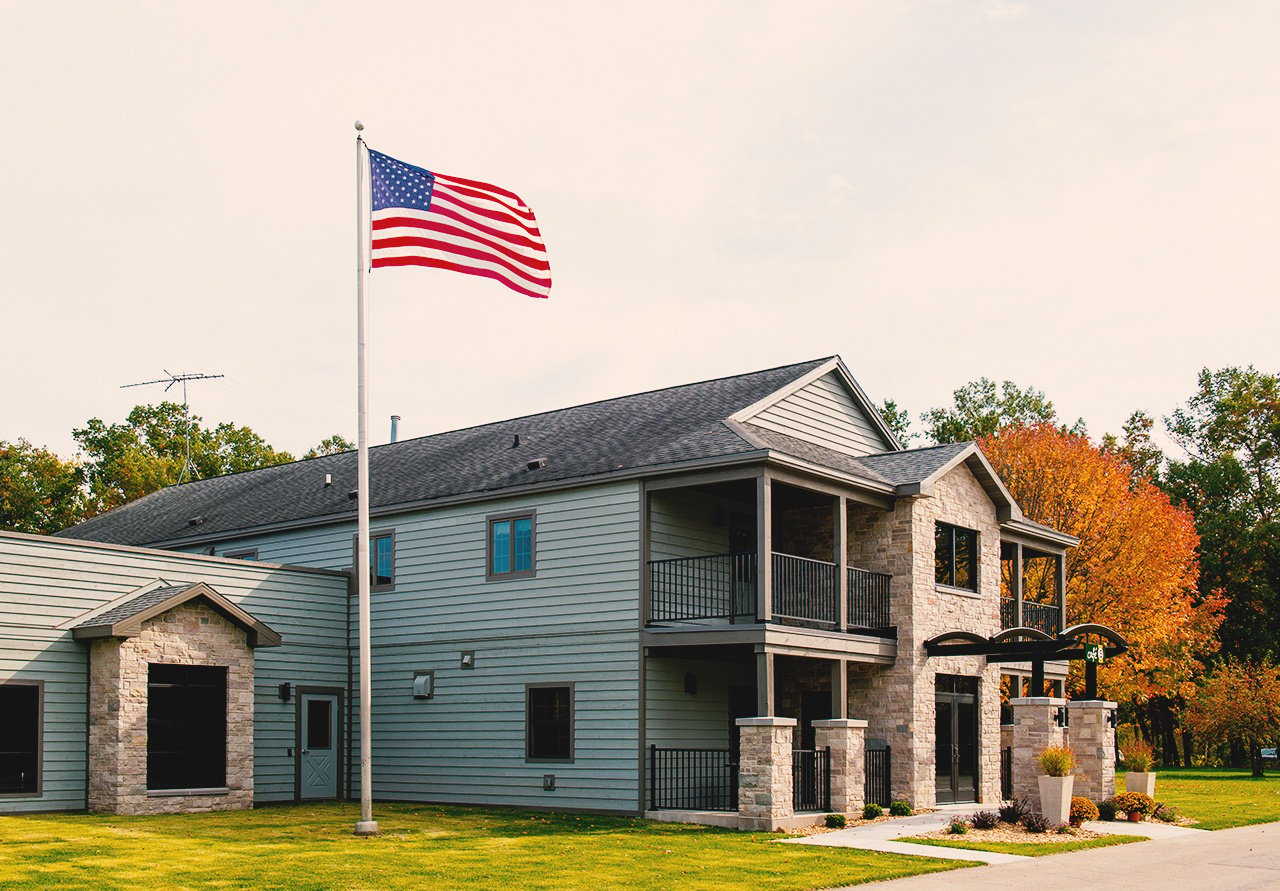
Tracking donations and volunteer time is an inexact science. There are millions of donations and volunteer hours that go unnoticed and uncounted in every community. That being said, large nonprofits and charity events track hours, and now nearly one-third of U.S. citizens itemize their tax returns to reflect their charitable giving amounts.
So let’s dive into the overall health of charitable giving in the United States of America. How does your state stack up?
The formula
For many charities, cash giving from individuals supplies the vast majority of their operating costs. And with 1.5 million registered nonprofits in the U.S, it can get competitive. The Chronicle of Philanthropy calculated out the ratio of adjusted gross income given to charity per household in every U.S. county. The “adjusted” qualifier means they’ve taken out certain necessities such as business and medical expenses and contributions to retirement plans. This is as close a metric to get a sense of where each state stands relative to each other and the nation cumulatively. It eliminated any skewing due to population size or income level.
However, there certainly are some flaws. This metric, and any other credible statistic, only takes into account legally claimed and itemized cash contributions. If you are one of the around 68% of Americans who never itemize donations on your tax return, then you are not included in this study. That disproportionately leaves out many low-income families and families that do not have access to a professional tax professional. So undoubtedly these metrics will skew higher for wealthier states with smaller and more educated populations.
The charitable giving map
Who guessed Utah? The western state is %1.5 higher than the second most charitable state, Mississippi. A closer look at Utah is in order. A possible explanation for Utah’s large giving ratio is found in Utah’s large Mormon population. Many Mormons follow a strict tithing policy of 10% annually. That would certainly drive up the percentage of adjusted income. Utah is also a Republican-leaning state, and according to a study from WalletHub, Republican-leaning states raise more funds for non-profits.
And at a measly 1.85% is New Hampshire. New Hampshire trends in all the opposite directions. It has a low percentage of church-going residents, a smaller per capita median income, and is a Democratic stronghold. Al of these could very well be just a coincidence, but the Northeast states in general did not fare well in The Chronicle of Philanthropy’s report.
Trends and interesting findings
New England, overall, fared very poorly. Rounding out the bottom five are New Jersey, Maine, Rhode Island, and Massachusetts. The only state from the Northeast to make the top 30 was New York.
Southern hospitality takes the crown in the study. Mississippi, Alabama, Tennessee, Oklahoma, Georgia, South Carolina, Arkansas, North Carolina, and Texas are all in the top 15 for giving ratio. Many of these Southeast states have a large majority of blue-collar families. Families with incomes of $50,000 to $100,000 a year donate roughly 40% more than those with larger, upper middle-class incomes.
Trusting a charity
Often times people are suspicious of donating to charities with fears of being scammed. Reputable charitable organizations will work diligently to achieve your trust. Recently nine charities within Northeast Wisconsin received the highest rating possible on Charity Navigator, a recognized independent resource and evaluator of charitable organizations. Rawhide Boys Ranch is honored to be recognized as a top charity and thank our donors for their continued support.
Volunteering vs donations
Utah also takes the top spot in annual time spent volunteering per capita, nearly doubling up second place Wisconsin in volunteer hours per capita. It’s a bit of a hodge-podge at the top of the volunteer rankings with states representing every geographical region of the US. In the top 10 is South Dakota, Virginia, New York, Wyoming, Nebraska, Washington, and Oklahoma.
Kentucky, Arkansas, and Rhode Island barely broke one-fourth of the hours Utah donated to helping charities. At 47 is Mississippi, who apparently prefer to give money over their time. Alabama, Texas, and Georgia also landed in the bottom 20 despite large giving ratios.
The state of U.S. charitable giving is strong
Overall, these maps are extremely positive and inspirational. We have a gluttony of dedicated, passionate Americans accomplishing great things through nonprofits and other charity. To all who have sacrificed and supported a nonprofit through either your time or money, thank you! It takes a lot of hands to lift up even one charitable cause, and in the U.S., we have nonprofits representing an uncountable number of causes. United States nonprofits contribute over $878 billion to the economy each year (over 5% of our GDP), employ 11.4 million people, and impact the lives millions of people in every state.
A day spent serving hungry folks at your local shelter is crucial. A morning picking up trash on the side of the highway is vital. An afternoon reading to children at the library is transformative. A night taking some local kids to a basketball game is life-altering. Little sacrifices, a fraction of your week, has the power to positively alter the future of our country and planet.
For more info, check out our volunteering series.
17 community service ideas to make your teen love volunteering











